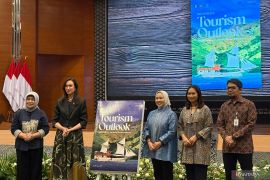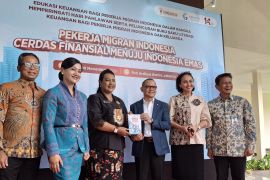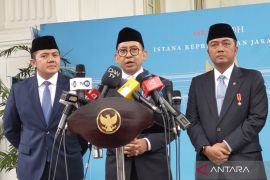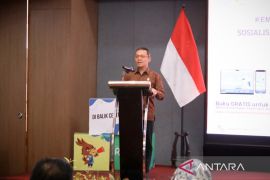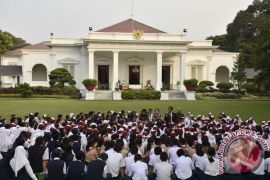"This is not a book about quakes and their sadness, but on how the Japanese fought to rebuild their life after the disaster," Yamashita said in Jakarta on Sunday.
Hani Yamashita is a house wife and mother of two, living in Saitama region, Tokyo, who became a volunteer after tsunami last year.
She said when the quake hit three prefectures, Miyagi, Fukushima and Iwate, while most Japanese were doing their daily activities, but when the quake struck, they could react immediately to save their lives.
"That is the result of many years of simulation and experience of Japanese facing the disaster," she said.
Japan is very concerned about disaster simulation and mitigation, Yamashita said adding that only five hours after the quake, electricity was restored.
Another story was about Japanese attitude of exaggerated pity, shown in international broadcasts which did not focus on their sufferings.
Japanese television only broadcast rescue and restructuring efforts after the disaster, although they had been ordered to broadcast cheerful ads for two weeks.
Yamashita said she expected Indonesia to follow Japan`s way to manage and survive after the disaster.
"We shared an experience about the disaster. Indonesia and Japan both are vulnerable to disasters, hence I think Indonesia could do what Japan has done," she said.
In the meantime, Junianto Herdiawan said Indonesian Leaders should follow Japanese leaders who reacted immediately in saving the victims.
"They worked immediately and focused on how to rescue the victims and restructuring," he said.
According to him, a couple of hours after the tsunami hit Japan, Emperor Akihito delivered a speech to encourage his people and to give them spirit to rebuild a new life.
"That was a very inspiring speech, without pity and sadness," Herdiawan said.
When the disaster struck, Herdiawan worked at the RI Embassy in Tokyo as an Indonesian economist of Bank of Indonesia, then he joined efforts of rescuing Indonesians in Tokyo.
He told a story about a Japanese grand mother who was not selfish or keep food for herself, although she was also a victim.
The grand mother gave her bread to Herdiawan happily and comforted him by saying, "You have to eat enough, you are far from your family, but have to stay with us here (in shelter)."
Herdiawan said that story was unlike many Indonesians concerned about themselves only.
"You can see it on television when a quake hit Yogyakarta in May 2006, many people scrambled for food, " he said.
Herdiawan also said he was sorry about the Indonesian media which broadcast the exaggerated sadness of the victims.
Therefore he hoped through the book Indonesian people would learn the Japanese way action when disaster strucki.
Meanwhile, Representative of the Japanese Embassy in Jakarta Tani said the book was very positive to introduce Japanese life after the disaster based on the Indonesian point of view.
"I really appreciate the publication of `Japan After Shock' and I do hope it could be also published in Japan," he said.
All of the royalties of this book will be donated to the Japanese Red Cross and other social organizations. (*)
Editor: Kunto Wibisono
Copyright © ANTARA 2012

